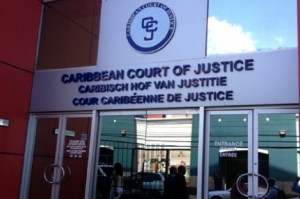
Culture
THE CARIBBEAN COURT OF JUSTICE
Excluding Britain, Forty-three of Fifty-Two Commonwealth countries left British colonialism. These countries include South Africa, Australia, New Zealand, Canada & India. Eight of the 10 Commonwealth countries that still connect to the Judicial Committee (JC) of the Privy Council as their final court of appeal are Caribbean Community (CARICOM) states.
Most Commonwealth countries who were tied to the JC of the Privy Council when they were colonies of Britain see no good reason why their final court should continue to be distant British persons, over seen by the British Prime Minister whose legal knowledge and expertise are no better than judges of their own countries or regions.
The argument of the CARICOM countries is that both parties the JC & The CCJ will be pretty much the same. The judges of the local courts are subject to direction of the governments that appoint them, and the judges are subject to influence from within their communities.
The JC of the Privy Council has not made any effort to educate or train judges and officers of local courts or to improve their judgments by oversight and advice. In Britain, the United States and elsewhere, judges of final courts are involved in the judicial training academies of their countries. The JC of the Privy Council can’t perform this role for the Caribbean. Fortunately, The Caribbean Court of Justice (CCJ) performs it through its Academy of Law and the Caribbean Association of Judicial Officers.
“Members of the PC are being handicapped because they are not from this community”. “The liberty of a final court of appeal to fashion as a third branch of Government depends not only on its legitimacy but upon the sensitivity of its members to what is necessary and what is possible.” – Lord Hoffman’s statements on his first visit to Trinidad while being a judge of the JC of the Privy Council for nine years.
The CCJ has proved Lord Hoffman right. It has been powered by leading Caribbean judges of high international considerations. Their judgments have been praised and cited by the highest courts of other lands. What is more, the CCJ has given Caribbean people of lesser means access to appeals. The quality of a final court cannot be determined by its distance from a jurisdiction, nor can it be judged by the colour of its judges’ skin.




